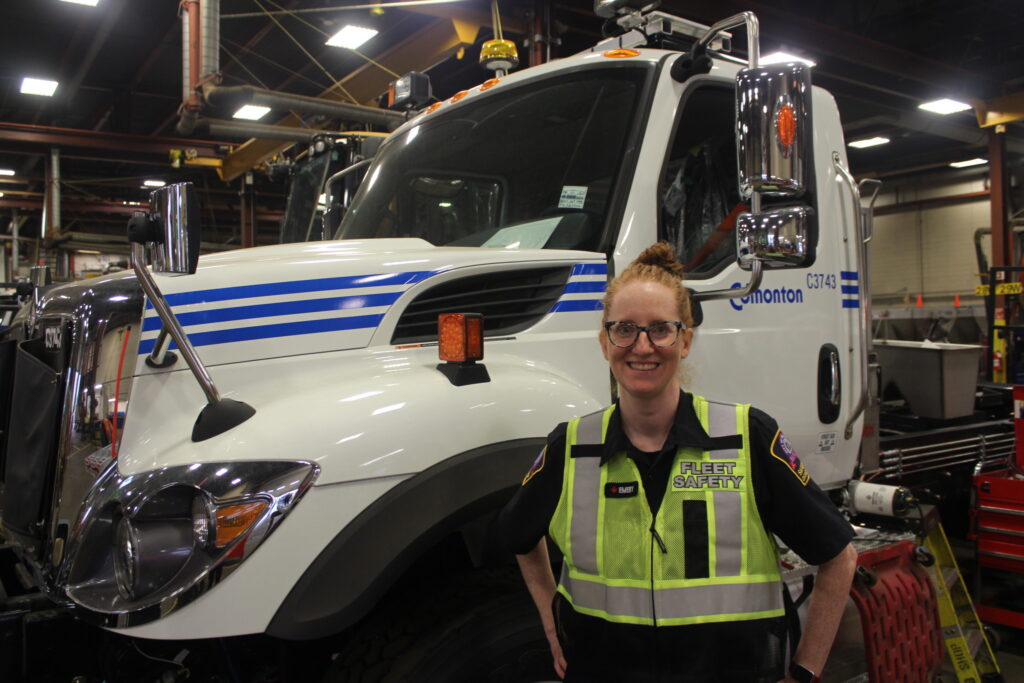‘I get to make a real difference in a safety culture’
Melissa Emery
Fleet Safety Officer
City of Edmonton
Edmonton, Alta.
This is one in a series of interviews with frontline workers as Today’s Trucking celebrates National Trucking Week, Sept. 5-11.

1. What can you tell us about your job and the work it includes?
The City of Edmonton has a fleet of over 4,200 vehicles and pieces of equipment, and over 8,000 drivers. As the National Safety Code coordinator, I provide strategic advice to management teams, ensuring departments meet or exceed corporate and legislative standards.
The standards I manage include safety ratings, driver and carrier profile systems, trip inspection reports, driver Hours of Service, commercial vehicle maintenance and inspections, load security, a classified driver’s licence system, medical standards, knowledge and performance testing, a driver training program, and collision investigation. I utilize coaching, communication strategies and internal enforcement to influence and motivate various branch management teams and staff to integrate safety into their everyday operations.
2. How did you come to work in the trucking industry?
I was a part-time delivery driver while I attended university. Once I graduated with my degree, my employer offered me a supervisory role in business development, and from there I was promoted into business operations — which included collision investigation and employee safety.
I started with the City of Edmonton nine years ago. With my previous employer, I was averaging a move to a new city every three years. I chose to move to the City of Edmonton in hopes of having some home stability to raise my children. I started as a fleet safety assistant tasked with creating and delivering National Safety Code training for the corporation. From there I was promoted to my current role.
3. What do you like the most about your job?
Every day is different and I get to make a real difference in a safety culture that affects so many people.
4. What is the biggest challenge the trucking industry faces today?
Quality drivers. Gone are the days of the classic “farm kids” that had lots of experience operating large vehicles. We, like most trucking and busing companies, are hiring less experienced drivers than years ago. We all need to focus on initial and ongoing driver training. The new mandatory entry-level training program that Alberta introduced in 2019 is a step in the right direction for having quality drivers on our roads, but it also had a huge impact on budgets. Trucikng and busing companies in Alberta struggle with the cost of training and upgrading an employee’s licence. As with other things in life, the cost increases as the quality improves.
5. Why do you think the trucking industry should be celebrated?
The Covid-19 pandemic has really showcased how the transportation industry as a whole is a much-needed essential service that deserves respect. Our trucking and busing professional drivers did not take a break over the past year and a half, and have demonstrated how key they are. The negative stigma of choosing a “truck driver” profession seems to be making a turnaround.
Have your say
This is a moderated forum. Comments will no longer be published unless they are accompanied by a first and last name and a verifiable email address. (Today's Trucking will not publish or share the email address.) Profane language and content deemed to be libelous, racist, or threatening in nature will not be published under any circumstances.